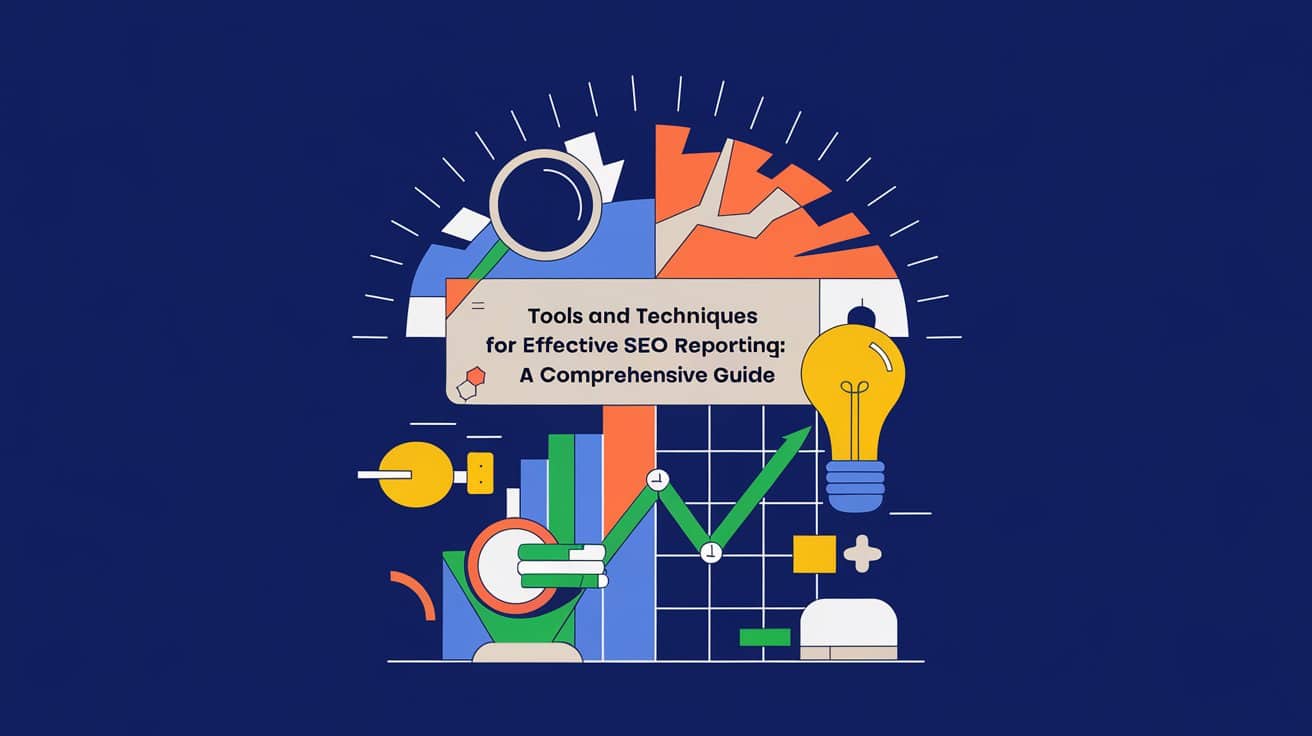Regular SEO reporting is an essential aspect of any successful digital marketing strategy. It enables businesses to track their website’s performance, identify areas for improvement, and make data-driven decisions to enhance their SEO tactics. With regular SEO reporting, businesses can stay up-to-date with the latest trends in search engine algorithms and adjust their strategy accordingly.
SEO reporting provides insights into how a website is performing in terms of traffic, rankings, and conversions. It helps businesses to identify which keywords are driving the most traffic, which pages are performing well, and which areas need improvement. Regular reporting also allows businesses to track their competitors’ performance and adjust their strategy accordingly. By monitoring their website’s performance, businesses can make informed decisions about where to allocate their resources and which tactics to prioritise.
In summary, regular SEO reporting is a crucial aspect of any digital marketing strategy. It provides businesses with valuable insights into their website’s performance, enabling them to make data-driven decisions to enhance their SEO tactics. With regular reporting, businesses can stay ahead of the competition and ensure that their website is optimised for maximum visibility and conversions.
Understanding the Importance of Regular SEO Reporting
Regular SEO reporting is an essential aspect of any successful SEO strategy. It involves tracking and analysing data related to the performance of your website in search engine results pages (SERPs). This data can provide valuable insights into the effectiveness of your SEO efforts, allowing you to identify areas for improvement and adjust your strategy accordingly.
SEO reports typically include a range of metrics, such as keyword rankings, organic traffic, backlinks, and more. By regularly monitoring these metrics, you can gain a better understanding of how your website is performing in search engines and identify any issues that need to be addressed.
One of the key benefits of regular SEO reporting is that it enables you to track the success of your SEO strategy over time. By comparing data from different periods, you can see how your website’s performance has changed and identify any trends or patterns. This can help you to make more informed decisions about your SEO strategy and adjust it as needed to achieve your goals.
Another important aspect of regular SEO reporting is that it allows you to stay up-to-date with changes in the search engine landscape. Search engines are constantly updating their algorithms and changing the way they rank websites, and regular reporting can help you to stay on top of these changes and adjust your strategy accordingly.
Overall, regular SEO reporting is a crucial component of any successful SEO strategy. By tracking and analysing data related to your website’s performance in search engines, you can gain valuable insights into the effectiveness of your strategy and make informed decisions about how to improve it.
Key Elements of Effective SEO Reporting
Regular SEO reporting is a crucial aspect of any effective SEO strategy. By monitoring and analyzing SEO metrics, businesses can gain valuable insights into their SEO performance and make informed decisions to improve their SEO efforts. Here are some key elements of effective SEO reporting:
1. Set SEO Goals and KPIs
The first step in effective SEO reporting is to set clear and measurable SEO goals and KPIs. This includes identifying the key metrics that are most relevant to your business, such as organic traffic, leads, revenue, conversion rate, ROI, domain authority, impressions, clicks, CTR, and website visitors.
2. Use SEO Reporting Tools
There are various SEO reporting tools available, such as Google Analytics, Google Search Console, SEMrush, and Google Data Studio. These tools can help businesses track and analyze their SEO data, including keyword rankings, search engine rankings, traffic, performance, and conversions.
3. Monitor SEO Metrics Regularly
Regular monitoring of SEO metrics is essential to keep track of your SEO performance and identify areas for improvement. This includes tracking changes in keyword rankings, organic traffic, conversions, and other key metrics over time.
4. Analyze SEO Data
Analyzing SEO data is crucial to gain insights into your SEO performance and identify areas for improvement. This includes analyzing trends, identifying patterns, and correlating data to determine the impact of your SEO efforts on your business goals.
5. Report SEO Metrics Clearly
Effective SEO reporting involves presenting SEO metrics in a clear and concise manner, using tables, charts, and other visual aids to make the data more accessible and understandable. This helps stakeholders to quickly identify trends, patterns, and areas for improvement.
By following these key elements of effective SEO reporting, businesses can gain valuable insights into their SEO performance and make informed decisions to improve their SEO strategy.
How SEO Reporting Enhances Your Strategy
Regular SEO reporting is crucial for enhancing your SEO strategy. By tracking your progress and analysing your results, you can identify areas for improvement and adjust your strategy accordingly. This ensures that you are always moving towards your goals and making the most of your SEO efforts.
SEO reporting provides valuable insights into the success of your strategy. By monitoring key metrics such as traffic, rankings, and conversions, you can determine which tactics are working and which ones need to be adjusted. This allows you to make data-driven decisions that can significantly improve the value and visibility of your brand.
Regular SEO reporting also helps you identify technical SEO issues that may be impacting your web pages’ performance. By monitoring your backlink profile and identifying broken links, you can improve your website’s overall health and ensure that search engines can crawl and index your pages effectively. This can have a significant impact on your rankings and overall success.
In addition to identifying technical SEO issues, regular reporting can help you stay on top of the latest trends and changes in the search engine landscape. By monitoring algorithm updates and identifying emerging trends, you can adjust your strategy to stay ahead of the curve and ensure that you are always optimising your content for maximum success.
Overall, regular SEO reporting is a key component of any successful SEO strategy. By providing valuable insights into your performance, identifying areas for improvement, and helping you stay ahead of the latest trends and changes, it can significantly improve the value and visibility of your brand.
Leveraging SEO Reporting Tools for Better Insights
Regular SEO reporting is crucial to improving your SEO strategy. By leveraging SEO reporting tools, you can gain better insights into your website’s performance and identify areas for improvement.
One of the most popular SEO reporting tools is Google Analytics. This free tool allows you to track website traffic, user behaviour, and conversion rates. With Google Analytics, you can see which pages are performing well and which ones need improvement. You can also identify the source of your traffic, whether it’s organic, paid, or social media.
Another useful tool is Google Search Console. This tool provides you with data on how your website appears in search results. You can see which keywords are driving traffic to your site and how your pages are ranking for those keywords. You can also identify any technical issues that may be affecting your website’s performance in search results.
SEMrush is another powerful SEO reporting tool. It allows you to track your website’s performance, as well as your competitors’. With SEMrush, you can see which keywords your competitors are ranking for and how you can improve your own rankings. You can also identify any backlinks that may be affecting your website’s performance.
Data visualization tools like Google Data Studio can help you make sense of all the data you collect from these tools. By creating custom reports and dashboards, you can easily see how your website is performing and identify areas for improvement.
In conclusion, leveraging SEO reporting tools is essential to improving your SEO strategy. By using tools like Google Analytics, Google Search Console, SEMrush, and Google Data Studio, you can gain better insights into your website’s performance and make data-driven decisions to improve your rankings and drive more traffic to your site.
Translating SEO Reports into Actionable Strategies
Regular SEO reporting is essential to the success of any SEO strategy. It provides an overview of the current state of your website’s SEO and highlights areas that need improvement. However, the real value of SEO reporting comes when you translate the data into actionable strategies that can help you achieve your goals.
To create an actionable plan, you need to understand the impact of the data in your SEO reports. This includes identifying keywords that are performing well and those that need improvement. By analysing your competitors, you can also identify areas where you can improve your SEO strategy and gain a competitive advantage.
One effective way to translate SEO reports into actionable strategies is to create a list of goals and priorities. This list should be based on the needs of your website and the data in your SEO reports. For example, if your website is not ranking well for a particular keyword, your goal might be to improve your ranking for that keyword.
Another way to create actionable strategies is to identify the resources you need to achieve your goals. This could include creating new content, updating existing content, or building backlinks. By identifying the resources you need, you can create a plan that is both realistic and achievable.
It’s important to remember that SEO reporting is not a one-time event. Regular reporting and analysis are essential to ensure that your SEO strategy is on track and that you are making progress towards your goals. By regularly translating your SEO reports into actionable strategies, you can improve your website’s SEO and achieve long-term success.
Communicating SEO Progress and Success to Stakeholders
Effective communication of SEO progress and success to stakeholders is crucial in enhancing the SEO strategy. The stakeholders involved in SEO reporting include clients, team members, and executives. The SEO report should provide a transparent summary of the progress made towards achieving the set goals.
The SEO report should be well-organized to ensure that the stakeholders can quickly understand the progress made towards achieving the set goals. One way of achieving this is by using dashboards that provide an executive summary of the SEO progress. The executive summary should highlight the key metrics, such as traffic, ranking, and conversions, and provide an overview of the progress made towards achieving the set goals.
Transparency is key when communicating SEO progress and success to stakeholders. The stakeholders need to know the progress made towards achieving the set goals and the challenges encountered. This will help in building trust between the stakeholders and the SEO team.
The SEO report should be customized to meet the needs of the stakeholders. For instance, the clients may be interested in knowing the ROI of the SEO strategy, while the executives may be interested in the overall impact of the SEO on the organization.
In conclusion, effective communication of SEO progress and success to stakeholders is crucial in enhancing the SEO strategy. The SEO report should be well-organized, transparent, and customized to meet the needs of the stakeholders.
Conclusion
Regular SEO reporting is a critical component of any successful SEO strategy. By regularly monitoring and analysing SEO metrics such as search engine rankings, organic traffic, backlinks, bounce rate, and more, stakeholders can gain valuable insights into the performance of their SEO efforts. This information can be used to tailor SEO strategies and improve the overall value and visibility of a brand.
SEO reporting tools such as SEMrush and Google Search Console provide an overview of a website’s SEO performance, highlighting trends and errors that need to be addressed. By using these tools, stakeholders can gain a deeper understanding of their audience and tailor their SEO efforts accordingly.
The data provided by SEO reporting can also be used to demonstrate the ROI of SEO to an organisation. By tracking leads, conversions, and other metrics, stakeholders can show the value of their SEO efforts and justify the resources allocated to SEO.
In addition to the technical aspects of SEO, regular reporting can also shed light on the user experience and content marketing efforts of a website. By monitoring site speed, broken links, and other factors, stakeholders can ensure that their website provides a seamless user experience. Furthermore, by analysing the backlink profile and content of a website, stakeholders can identify areas for improvement and develop strategies to increase organic visibility.
Overall, regular SEO reporting is a valuable tool for any organisation looking to improve its online presence. By providing actionable insights and increasing transparency, SEO reporting can help stakeholders make informed decisions and drive sales and success.






